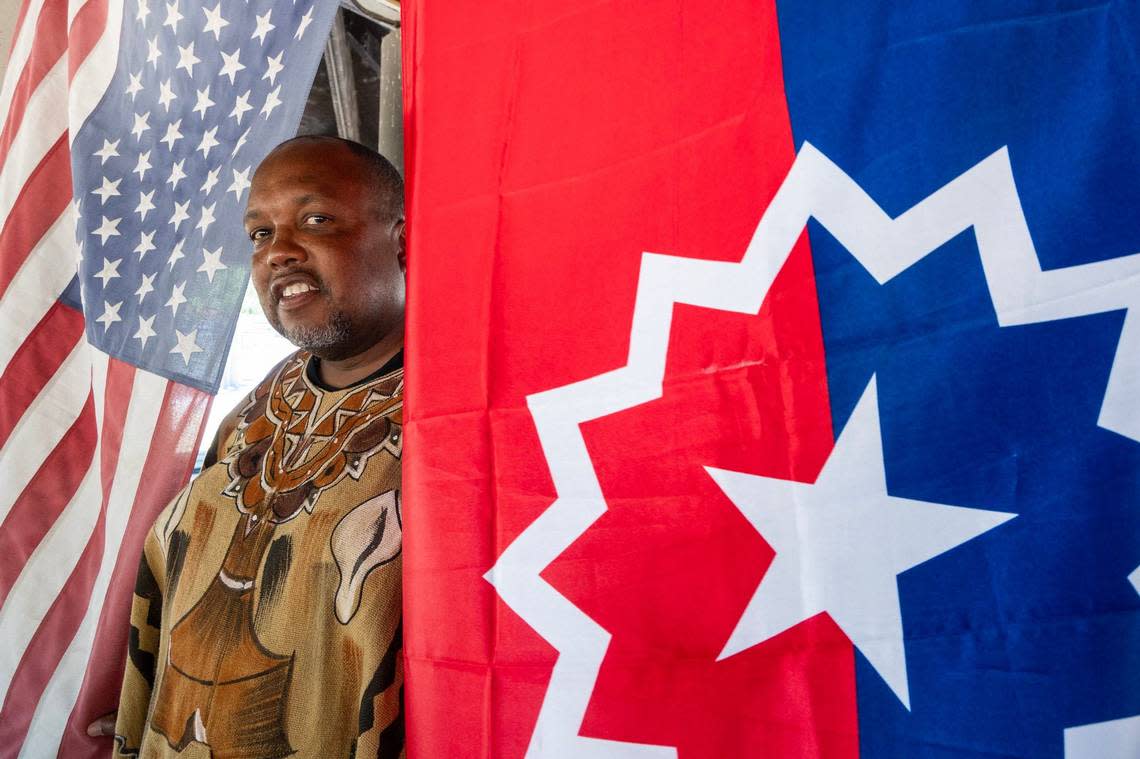Folsom man is part of a movement to make Juneteenth a paid holiday in California cities

Three years ago, President Joe Biden signed Juneteenth National Independence Day into law to commemorate the end of slavery in the United States on June 19 annually.
The holiday — on a Wednesday this year — closes federal facilities and gives federal employees a day off.
California officially recognized Juneteenth as a state holiday in 2023, giving state workers the option of taking the day off in lieu of a personal day.
But how California’s local governments, including those in the Sacramento area, mark the day of liberation is a mixed bag: Celebrations in one, observances in another, official public holidays in still other jurisdictions.
A Black advocate in Folsom is part of a statewide movement to urge California cities to designate Juneteenth an official public holiday in alignment with federal law and California’s designated state holiday.
“Juneteenth is not just a Black-only holiday. This is a federal holiday,” said Michael Harris, part of National Juneteenth Observance Foundation-California. The advocacy group seeks to expand cities’ official marking of the federal holiday across California’s 58 counties, focusing on cities with populations of 100,000 or more.
“To have a law that’s quasi-optional makes no sense. This is the only federal holiday that’s treated this way,” Harris said. “All other federal holidays, it’s a day off and it’s celebrating a holiday. But Juneteenth is quasi-optional. You can opt not to celebrate it.”
Who has Juneteenth off?
Juneteenth commemorates the date when Union Maj. Gen. Gordon Granger arrived in Galveston, Texas, in 1865 to announce the end of the Civil War and an end to slavery, two years after President Abraham Lincoln signed the Emancipation Proclamation. Texas marked the date an official holiday in 1980, but the date, also known as Jubilee or Emancipation Day, had long been celebrated unofficially in the Lone Star State.
Biden’s signature in 2021, a year after the police killing of George Floyd in 2020 that triggered a national reckoning on race, the holiday officially celebrated the freedom of enslaved Black people more than 150 years after slavery’s end.
Nearly every U.S. state — 47 of 50 — observes the day in some fashion; 28 including Nevada, Oregon and Washington, give its state workers the day off, according to information compiled by Pew Research Center.
Los Angeles, San Jose, San Diego and San Francisco — which has observed the day with parades and events for nearly 80 years — are among the California cities that followed the federal and state’s lead. Locally, so is Davis, where city offices will close for the federal holiday.
Sacramento, which has a long tradition of Juneteenth community celebration, does not declare Juneteenth a city holiday. But cities across the region in the years since 2020 including Elk Grove have issued proclamations calling on residents to observe and celebrate.
Last week, Woodland, the Yolo County seat, officially observed the day for the first time, honoring Black settlers in the county in the 1850s, as well as Black Woodland residents who helped build the city’s historic opera house; and founding members of Woodland’s Greater Second Baptist Church, long a touchstone of Woodland’s Black faith community.
The Juneteenth holiday bill brought by Assemblymember Reggie Jones-Sawyer, D-South Los Angeles, and California Legislative Black Caucus member, was signed into law in September 2022.
Gov. Gavin Newsom remarked at the time, “Juneteenth marks a defining moment: the true emancipation of enslaved Black Americans. … This is history we can’t ignore. We have to face it head on.” Newsom added that “even as Juneteenth exposes our worst demons, it represents our better angels, those who persisted, and those who fought for true freedom, even in the face of unimaginable injustice and despair.”
Harris said confronting that history is a key reason for the statewide Juneteenth effort, to look at the Civil War, examine its costs and honor those who fought and died for emancipation.
“The Confederacy seceded from the Union. They had their own government, their own military, and we had four years of war,” Harris said. “Juneteenth represents the last of those battles, to go plantation to plantation freeing those who had been enslaved. We should be on the forefront and celebrate it.”


